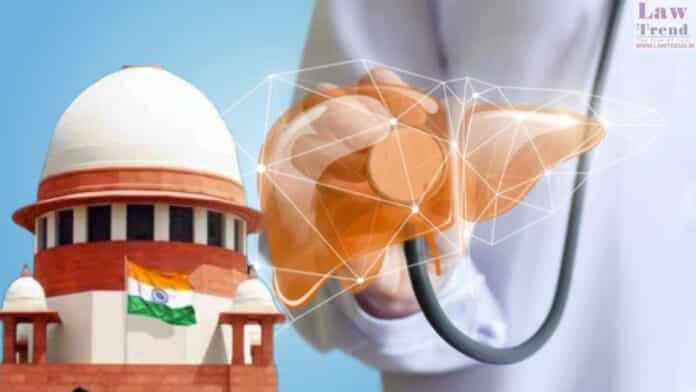The Supreme Court on Friday sought responses from the Centre, the Directorate General of Health Services and states on a PIL seeking a direction that only registered medical institutions be allowed to engage in removal, storage or transplantation of human organs and tissues.
A bench comprising justices Surya Kant and KV Viswanathan took note of the submission of senior advocate Vikas Singh, appearing for the PIL petitioner, that there was an urgent need to ensure that government or semi-government medical institutions must be registered with the National Organ and Tissue Transplant Organization (NOTTO) for undertaking transplantation of human organs and tissues.
The senior advocate said living donors have been the primary source of kidneys and livers for transplantation for the last many years in India and there was a need to change the trend by streamlining the system.

Singh also sought a direction for implementing the recommendations made in the report of a task force headed by Dr YK Chawla, former Director PGIMER, Chandigarh, on “Organ Donation and Transplantation”. Medical facilities undertaking transplantation needed to be streamlined and strengthened, the senior advocate said citing the report.
Besides the Centre and the DGHS, the PIL filed by Madhya Pradesh-based oraganisation — Gaveshna: Maanvotthan Paryavaran Evam Swasthya Jaagrookata Samiti’ has made the National Organ and Tissue Transplant Organization (NOTTO) and all states and UTs parties to the petition.
The PIL, filed through lawyer Varun Thakur, has sought a direction that government or semi-government medical colleges and district hospitals fulfil the requirements under Section 14 and 14-A of the Transplantation of Human Organs (Amendment) Act, 2011.
“Direct the Respondent (Centre and others) to constitute the Advisory Committees to advise the Appropriate Authority as per Section 13A of The Transplantation of Human Organs (Amendment) Act, 2011…,” it said.
Section 14 says, “No hospital (including Human Organ Retrieval Centre) shall commence any activity relating to the removal, storage or transplantation of any human organ and tissue or both for therapeutic purposes after the commencement of this act unless such hospital is duly registered under this Act.”
Also Read
Section 13 A of the 2011 law provides for setting up advisory committees by the Centre and states for a period of two years to aid and advise the appropriate authority in discharge of the functions related to transplantation of human organs and tissues.
“Almost 160,000 fatal road traffic accidental (RTA) deaths happen in India and almost 60% have associated head injury (almost 90 per million possible brain deaths from RTA). Similarly, CVA (cerebral vascular accident ) is another common cause of death …in India (prevalence rate of CVA ranging from 44.54 to 150 per 100,000 population) and 30 days case fatality rate ranging from 18% to 46.3% and these are also part of deceased donor pool in our country. A large number of organs from these patients could be harvested for transplantation,” the plea said.







